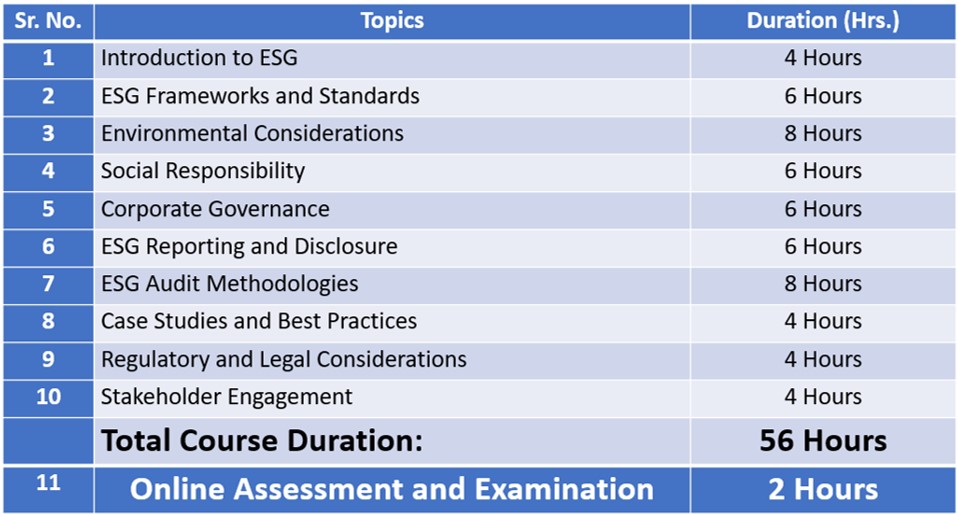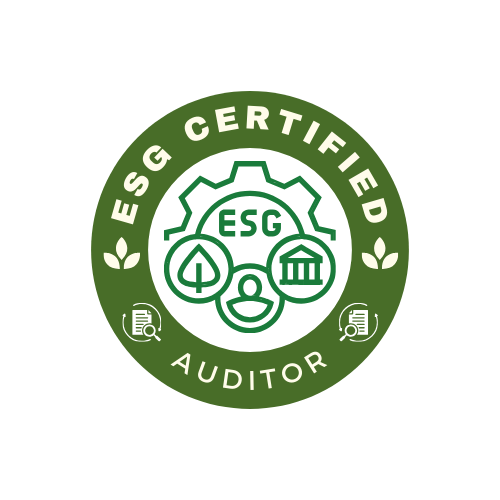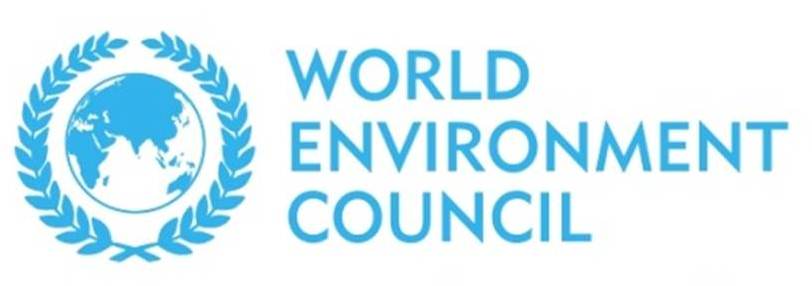Online ESG Reporting Course Payment Terms and Conditions
1. Course Fees:
- The total fee for the ESG Reporting Course is Rs.10,000/-.($120 usd for Foreign students)
- Fees must be paid in full prior to the commencement of the course.
2. Payment Methods:
- Payments can be made via credit card, debit card, bank transfer, or other specified payment gateways.
- All payments should be made in INR and USD.
3. Payment Deadline:
- Payment must be completed by before course starting.
- Late payments may result in a delay in course enrollment or access to course materials.
4. Confirmation of Enrollment:
- Enrollment in the course is confirmed only upon receipt of full payment.
- A confirmation email with course access details will be sent within 2 business days after payment is received.
5. Cancellation and Refund Policy:
- Cancellations made more than 5 days before the course start date are eligible for a full refund, minus a Rs.2000/- administrative fee.
- Cancellations made within 3 days of the course start date are not eligible for a refund.
- No refunds will be provided once the course has started.
6. Course Access:
- Access to the online course materials is granted for the duration of the course.
- Course materials and access credentials are non-transferable.
7. Liability:
- The World Environment Council is not responsible for any technical issues or internet connectivity problems that may hinder access to the course.
- Participants are responsible for ensuring they have the necessary technical requirements to access the course.
8. Intellectual Property:
- All course materials are the intellectual property of the World Environment Council.
- Unauthorized sharing, reproduction, or distribution of course materials is prohibited.
9. Code of Conduct:
- Participants are expected to engage respectfully and professionally in all course activities.
- Any behavior deemed inappropriate may result in removal from the course without refund.
10. Amendments:
- The World Environment Council reserves the right to amend these terms and conditions at any time.
- Participants will be notified of any changes to the terms and conditions.
Certified
ESG Auditor Course: A Comprehensive Overview
Introduction: The Certified
Environmental, Social, and Governance (ESG) Auditor course is designed to
provide professionals with the knowledge, skills, and credentials necessary to
audit and assess organizations' ESG practices effectively. This course covers a
wide range of topics related to environmental sustainability, social
responsibility, and corporate governance, equipping participants with the
expertise needed to evaluate and enhance ESG performance across various
industries.
Course Objectives:
1.
Understand
the fundamental concepts and principles of ESG.
2.
Learn about
the importance of ESG in today's business landscape.
3.
Explore key
frameworks and standards related to ESG, such as the Global Reporting
Initiative (GRI), Sustainability Accounting Standards Board (SASB), and Task
Force on Climate-related Financial Disclosures (TCFD).
4.
Gain insights
into best practices for integrating ESG considerations into organizational
strategy, operations, and reporting.
5.
Develop
proficiency in conducting ESG audits, including assessing environmental impact,
social practices, and governance structures.
6.
Acquire
practical skills for identifying ESG risks and opportunities within
organizations and recommending strategies for improvement.
7. Understand the role of ESG in stakeholder engagement, reputation management, and long-term value creation.
Course Format:
· The course may be delivered through a combination
of lectures, interactive workshops, case studies, and practical exercises.
· Participants may have access to online learning
platforms, course materials, and resources to support their learning journey.
· The course duration may vary, ranging from several
days to several weeks, depending on the depth and breadth of the curriculum.
Certification: Upon successful completion of the Certified ESG
Auditor course, participants may receive a professional certification or
accreditation demonstrating their proficiency in ESG auditing and reporting.
This certification could be awarded by reputable organizations, industry
associations, or certification bodies recognized for their expertise in
sustainability and corporate governance.
To earn this certification, candidates must successfully complete a 2-hours online exam consisting of multiple-choice questions with some case studies. The exam is closed book, and candidates are required to pay an examination fee of $50. In the event of an exam retake, candidates are required to pay a fee of $30.
What are the benefits of this certification?
Securing a professional certification in the environmental field offers
several advantages. It provides employers and clients with assurance that
individuals have met minimum standards for education, experience, and
expertise, as validated by an independent third-party organization. This
credential enhances credibility and demonstrates a commitment to maintaining
high standards of professionalism within the environmental sector.
The World Environment Council, a nonprofit organization, offers various
certification programs for EH&S and ESG professionals. Regarded as a
leading entity in the environmental and safety sector, WEC is widely recognized
for its contributions to the industry.
Although certifications may not be mandatory for environmental
professionals, obtaining this credential can significantly augment job
prospects. It enables individuals to showcase their expertise, experience, and
educational background in the environmental domain, thereby increasing their
attractiveness to potential employers.
Conclusion: The Certified ESG Auditor course offers a comprehensive learning experience for professionals seeking to enhance their skills and credentials in the field of environmental, social, and governance auditing. By mastering the principles, frameworks, and best practices of ESG, participants can contribute to driving sustainable business practices, fostering stakeholder trust, and creating long-term value for organizations and society as a whole.
Course
Curriculum with Duration

Note: The duration of each topic may vary depending on the depth of coverage and the mode of delivery (e.g., lectures, workshops, discussions). The above breakdown provides an estimated allocation of hours for each course component.
Career Opportunities:
1. ESG
Auditor: Conduct audits to assess
organizations' ESG performance and compliance with ESG standards and
regulations.
2. Sustainability
Consultant: Provide advisory
services to organizations on implementing sustainable business practices and
ESG strategies.
3. Corporate
Social Responsibility (CSR) Manager: Oversee the development and implementation of CSR initiatives, ensuring
alignment with ESG principles and organizational goals.
4. Environmental
Manager: Manage environmental
sustainability initiatives, including resource management, waste reduction, and
environmental impact assessments.
5. Governance
Specialist: Advise on corporate
governance practices, including board composition, executive compensation, and
stakeholder engagement, to ensure transparency and accountability.
6. ESG
Analyst: Analyze companies' ESG
performance and provide insights to investors, rating agencies, and other
stakeholders.
7. Compliance
Officer: Ensure organizations
comply with ESG regulations, standards, and legal requirements, mitigating
risks and ensuring ethical conduct.
8. Sustainability
Reporting Specialist: Compile and
analyze ESG data for transparent and effective reporting, facilitating informed
decision-making and stakeholder communication.
9. ESG Policy
Advocate: Advocate for ESG
policies and regulations at the corporate, industry, and governmental levels to
promote sustainability and social responsibility.
10. ESG Risk
Manager: Identify and mitigate
ESG-related risks for organizations, ensuring sustainable operations and
long-term viability.
Eligibility Criteria:
- To be eligible, you need a bachelor’s degree in an environmentally related discipline. Three years of acceptable work experience may be substituted for each year of an academic degree program.
- You also need five years of work experience directly involved with environmental audits of operating facilities and processes.
- Basic understanding of business principles and sustainability concepts recommended but not mandatory.
- Prior work experience in related fields such as finance, accounting, sustainability, or corporate governance may be advantageous.
- Strong communication skills in English, both written and verbal.
- Access to a computer with internet connectivity for online learning modules and discussions.
- Commitment to actively participate in course activities, assignments, and assessments.
- Professional background required; open to individuals seeking to enhance their knowledge and skills in ESG reporting and auditing.
Whatsapp Only : - Mr. Aditya +91-8130305369
Email - contact@wec.org.in / worldenvironmentcouncil@gmail.com
Regards,
Academic Head (Board of Studies)
Frequently Asked Questions
(FAQs) - Certified ESG Auditor Course
1. What is the Certified ESG
Auditor course about?
World Environment Council’s, The
Certified Environmental, Social, and Governance (ESG) Auditor course is
designed to equip professionals with the knowledge and skills necessary to
audit and assess organizations' ESG practices effectively. It covers topics
related to environmental sustainability, social responsibility, and corporate
governance.
2. Who is this course designed
for?
This course is suitable for
professionals working in various fields, including auditing, sustainability,
corporate governance, risk management, and compliance. It is ideal for
individuals seeking to enhance their expertise in ESG auditing and reporting.
3. What are the main
objectives of the course?
The objectives of the course
include understanding fundamental ESG concepts, exploring key frameworks and
standards, gaining insights into best practices for integrating ESG
considerations into organizational strategy, and developing proficiency in
conducting ESG audits.
4. What topics are covered in
the course curriculum?
The course curriculum includes
topics such as ESG frameworks and standards, environmental considerations,
social responsibility, corporate governance, ESG reporting and disclosure,
audit methodologies, case studies, regulatory considerations, and stakeholder
engagement.
5. How is the course
delivered?
The course may be delivered
through a combination of lectures, interactive workshops, case studies, and
practical exercises. Participants may also have access to online learning
platforms, course materials, and resources to support their learning journey.
6. How long does the course
take to complete?
The duration of the course may
vary, ranging from several days to several weeks, depending on the depth and
breadth of the curriculum.
7. What certification will
participants receive upon completion of the course?
Participants may receive a
professional certification or accreditation demonstrating their proficiency in
ESG auditing and reporting. This certification could be awarded by reputable
organizations, industry associations, or certification bodies recognized for
their expertise in sustainability and corporate governance.
8. What is the examination process
for certification?
To earn the certification,
candidates must successfully complete a 2-hour online exam consisting of
multiple-choice questions with some case studies. The exam is closed book, and
candidates are required to pay an examination fee of $50. In the event of an
exam retake, candidates are required to pay a fee of $30.
9. Are there any prerequisites
for taking the course?
While there are no strict
prerequisites, participants with a background or experience in auditing,
sustainability, corporate governance, or related fields may benefit from the
course.
10. How can I enroll in the
course?
Interested individuals can
typically enroll in the course through the website or registration portal of
the organization offering the certification. Details regarding enrollment,
fees, and course schedules are usually provided on the organization's website.
11. How long is the ESG course duration?
The course spans a total duration of 56 hours, spread over 19
days, with sessions running for 3 hours each day batch wise from 7:30 AM to
10:30 AM and 6 PM to 9 PM.
12. What is the training mode?
Online training sessions over Zoom, with small assignments.
13. What is the educational qualification required to
attend this training?
The minimum qualification required to enroll in this
training is a graduation degree.
14. Does the training have a fee?
The training fee is Rs. 75,000/- and $900 USD per participant, payable online at the time of enrollment.
Payment Terms and Conditions
1. Course Fees:
- The total fee for the ESG Audit Course is Rs.75,000/-.
- Fees must be paid in full prior to the commencement of the course.
2. Payment Methods:
- Payments can be made via credit card, debit card, bank transfer, or other specified payment gateways.
- All payments should be made in INR and USD.
3. Payment Deadline:
- Payment must be completed by before course starting.
- Late payments may result in a delay in course enrollment or access to course materials.
4. Confirmation of Enrollment:
- Enrollment in the course is confirmed only upon receipt of full payment.
- A confirmation email with course access details will be sent within 2 business days after payment is received.
5. Cancellation and Refund Policy:
- Cancellations made more than 5 days before the course start date are eligible for a full refund, minus a Rs.2000/- administrative fee.
- Cancellations made within 3 days of the course start date are not eligible for a refund.
- No refunds will be provided once the course has started.
6. Course Access:
- Access to the online course materials is granted for the duration of the course.
- Course materials and access credentials are non-transferable.
7. Liability:
- The World Environment Council is not responsible for any technical issues or internet connectivity problems that may hinder access to the course.
- Participants are responsible for ensuring they have the necessary technical requirements to access the course.
8. Intellectual Property:
- All course materials are the intellectual property of the World Environment Council.
- Unauthorized sharing, reproduction, or distribution of course materials is prohibited.
9. Code of Conduct:
- Participants are expected to engage respectfully and professionally in all course activities.
- Any behavior deemed inappropriate may result in removal from the course without refund.
10. Amendments:
- The World Environment Council reserves the right to amend these terms and conditions at any time.
- Participants will be notified of any changes to the terms and conditions.

ESG Certified Auditor
The Certified Environmental, Social, and Governance (ESG) Auditor course is designed to provide professionals with the knowledge, skills, and credentials necessary to audit and assess organizations' ESG practices effectively. This course covers a wide range of topics related to environmental sustainability, social responsibility, and corporate governance, equipping participants with the expertise needed to evaluate and enhance ESG performance across various industries.

Green Building Certification
The Green Building Certification course offers comprehensive training on sustainable building practices and principles. Participants will gain an in-depth understanding of environmentally friendly construction materials, energy-efficient design strategies, and renewable energy integration. Through hands-on exercises and case studies, learners will learn how to navigate green building certification systems such as LEED, BREEAM, and Green Star. This course equips professionals with the knowledge and skills needed to contribute to the creation of healthier, more sustainable built environments.

Certified Sustainability Consultant
The Certified Sustainability Consultant course provides essential training for professionals aiming to drive sustainable practices across various industries. Participants will learn to assess environmental impacts, develop sustainability strategies, and implement effective solutions. Through case studies and practical exercises, learners will gain hands-on experience in areas such as carbon footprint reduction, waste management, and renewable energy adoption. This course equips consultants with the expertise needed to guide organizations towards achieving their sustainability goals while maximizing social and economic benefits.





